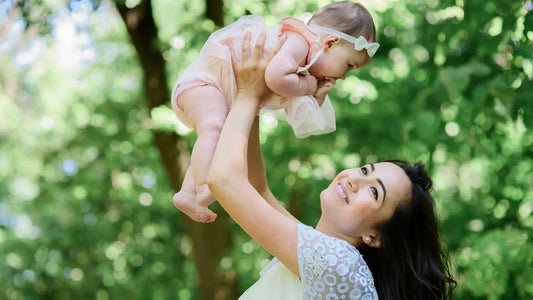The Importance of Developing Hobbies in Children
As parents, we want to do absolutely everything in our power to help our children grow into well-rounded, balanced individuals with enriching lives, right? While putting energy into their education, values, and basic care routines is obviously essential, we shouldn't ignore the importance of hobbies and interests!
Pursuing hobbies from a young age provides some truly foundational benefits that extend far beyond just entertainment value. We're talking about cognitive and emotional growth, skill-building, boosted self-confidence, and so much more. Hobbies represent the ultimate boredom-busting antidote while setting the stage for curious kids to start exploring their unique potential.
Why Developing Childhood Hobbies Matters So Much
On the surface, hobbies seem like a simple fun way for kids to express their vibrant imaginations and curiosities. But playtime activities actually serve as vital educational tools that promote:
- Creative Thinking & Problem-Solving: Hobbies inspire innovative, out-of-the-box thinking by challenging kids to approach tasks from new angles and experiment with alternative solutions. For example, a child building a Lego structure might experiment with different designs to make it taller and more stable.
- Confidence Building: As babies experience those mini self-made "achievements" through hobbies, it helps instill a lasting sense of confidence, independence, and "I can do it!" motivation.
- Personality Exploration: Hobbies provide opportunities for kids to explore their identity, get creatively expressive, and find their hidden talents or interests. For example, many children find out their talent for drawing and art from a very young age.
- Emotional Development: Experiencing successes and failures through their hobbies helps build self-confidence, humility and determination in kids.
- Broadened Perspectives: Hobbies expose kids to new experiences and cultures that expand their worldview beyond the typical childhood bubbles.
As you can see, hobbies do so much more than fun. They're a fundamental vehicle for intellectual, emotional, and even spiritual growth across childhood and adolescence.
Age-Appropriate Baby & Child Hobby Ideas
Luckily, introducing your bundle of joy to joyful hobbies doesn't require purchasing expensive equipment or memberships at first. Oftentimes, the most delightfully engaging hobbies are incredibly simple, safe, and affordable for those earliest interest-building days. Here are some fun, mentally-stimulating options to consider:
Newborns to 1 Year:
- Reading books/storytelling
- Gentle music and sound exploration
- Messy play with paints, puddings, shaving cream
- Clapping games and dancing
1 to 2 Years:
- Singing, rhyming and making up silly songs
- Sorting shapes, colors and sizes through play
- Sensory bins filled with safe, textured objects
- Pretend play and character voicing
- Practicing motor skills like stacking, pouring, rolling
2 to 5 Years:
- Arts and crafts projects using varied mediums
- Assembling puzzles and brain teasers
- Performing skits or shows using imagination
- Building and construction with blocks/legos
- Gardening and nurturing plants
Don't feel pressured to get too elaborate either! Let their interests guide you, and look for creative ways to gently nurture those budding curiosities.
Prevention Tips
While exploring unique hobbies together is all about unbridled joy for your baby, a few simple preventative measures ensure safety and sustainability:
- Prioritize Age-Appropriate: Always verify the recommended age and safety considerations for any materials, toys, or hobby tools you introduce. Their well-being comes first!
- Rotate and Repurpose: Regularly rotating hobby activities and repurposing inexpensive household items averts boredom or choking hazards from tiny loose parts.
- Reasonable Time Limits: While absorbed fascination is awesome, impose reasonable hobby time limits for their focus spans and safety boundaries.
- Adult Guidance Required: Never leave an infant or toddler unattended while pursuing hobbies. Your participation and watchful presence are a must.
- Keep it Light-hearted: Most of all, don't apply too much pressure or sap the fun out of hobby time! A lighthearted, low-stress attitude fosters their natural interests best.
It's also wise to start evaluating costs and time commitments once those initial casual hobbies evolve into more intensive pursuits as they get older. But during those early stages? There's no limit to the creative, budget-friendly ways you can spark that fiery sense of curiosity and exploration within them!
Conclusion
We all know that your baby’s finger painting or ice skating will not impress the admission boards at Harvard University. But letting their spirits soar through low-stakes, expressive hobbies today absolutely nurtures the well-adjusted, uniquely talented, and endlessly curious adults they'll become tomorrow.
When it comes to providing equal opportunity for whole-child development, don't underestimate those "silly" hobbies' importance alongside hitting ABCs and math milestones. They shape formative skills, mindsets and self-confidence just as reliably – just way more delightfully!
Shop for the Best Baby Care Products
FAQs
1. Why are hobbies important for children?
Ans. Hobbies help children explore their personality, build confidence, stimulate cognitive abilities, and broaden their perspectives.
2. What are some hobby ideas for newborns to 1-year-olds?
Ans. Reading books, exploring gentle music and sounds, messy play with safe materials, and clapping games are suitable for this age group.
3. How can parents ensure safety during hobby activities?
Ans. Parents should prioritize age-appropriate activities, rotate toys, set reasonable time limits, provide constant adult supervision, and keep the atmosphere light-hearted.
4. How do hobbies contribute to a child's development?
Ans. Hobbies contribute to intellectual, emotional, and even spiritual growth, helping shape formative skills, mindsets, and self-confidence.
5. Should parents put pressure on children to excel in their hobbies?
Ans. No, parents should keep hobby time light-hearted and low-stress to foster children's natural interests and enjoyment.




